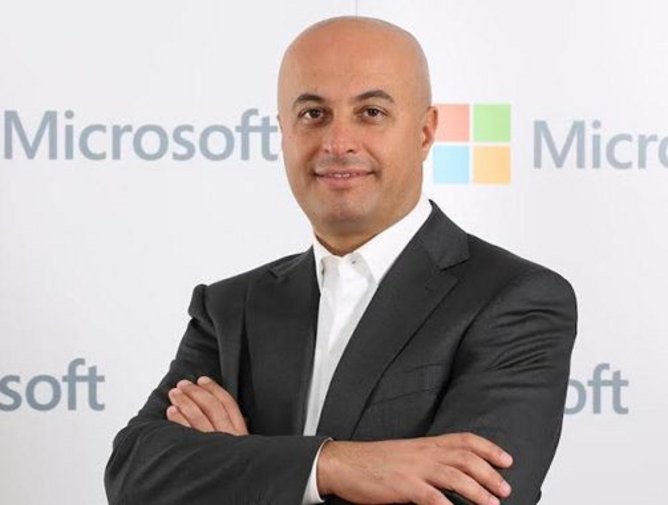Entrepreneurs
Samer Abu-Ltaif: The Man behind Microsoft’s Digital Evolution in Central & Eastern Europe, Middle East & Africa

When it comes to shaping digital transformation across vast and diverse markets, few executives bring the blend of vision and expertise that Samer Abu-Ltaif offers. The Corporate Vice President leading the newly formed Central & Eastern Europe, Middle East & Africa (CEMA) region at Microsoft, an area that spans 105 countries, touching three continents. His leadership is no longer about technology but about facilitating economic development, empowering youth, and changing industries to thrive in the digital age.
A near-20-year veteran at Microsoft, Abu-Ltaif’s legacy is simply unmatched. He has introduced the most transformative cloud technologies. He has also launched skill development initiatives that uplift underserved regions. All of it speaks to the mission Microsoft has for empowering individuals and organizations worldwide.
Samer Abu-Ltaif assumed the CEMA role in February 2023, bringing under one umbrella the Middle East, Africa, and Central & Eastern Europe. This move strategically allowed Microsoft to combine the efforts of diverse markets toward harmonized cross-regional collaboration and scaling innovation. It consists of 105 countries and represents a wide variation of cultures and economies. This is where Samer’s leadership is crucial in working with such complexity. One of his notable priorities is the acceleration of digital transformation. Through his leadership, Microsoft has been championing several initiatives, including establishing local cloud data centers in places such as South Africa, the UAE, and Qatar, not only to support businesses but also to enable governments to modernize public services, making technology available and efficient for millions.
Samer’s journey began in Lebanon, where he studied computer science at the American University of Beirut. He started his career as a marketing representative for NCR in Kuwait and quickly advanced to leadership roles. By the time he was 29, he was managing NCR’s Bahrain operations, a testament to his ability to drive results even in competitive markets.
Joining Microsoft in 2004 marked a turning point in his career. He has held pivotal roles, including Regional Director for the Enterprise & Partner Group in the Middle East & Africa (MEA) region and Regional General Manager for Microsoft Gulf. His ability to identify market needs and deliver tailored solutions earned him accolades, including the prestigious Microsoft Honor Compete Awards in 2007, 2008, and 2009.
One of Abu-Ltaif’s standout contributions has been his focus on empowering youth and skills development. Having believed in the potential of youth, he has initiated projects giving thousands of people access to cutting-edge technology, digital training, and mentorship programs. These efforts have paved the way for a techno-savvy workforce, especially in Africa and the Middle East.
Under his leadership, Microsoft had introduced Africa Development Center under his leadership as a hub in Nigeria and Kenya, allowing the incubation of talents locally; with $100 million investment into this, provided resources to software engineers, developers, and other solutions that resonate at a local and scale across the globe. Similarly, Microsoft for startups Founders Hub has enabled smaller and medium enterprises overcome commonly faced hurdles and increase their innovation among emerging markets.
He works closely with governments and enterprises to align digital transformation goals with broader sustainability targets. A recent partnership between Microsoft and African telecom giant MTN Group is a testament to this vision, focusing on cloud transformation and SME digitization.
Abu-Ltaif is a great proponent of diversity and inclusion. His decades of experience working across the Middle East, Africa, and Europe have given him a conviction to drive innovation through diverse perspectives. Through his efforts to make the multicultural teams of Microsoft collaborate with each other, he has become an example of inclusive leadership.
